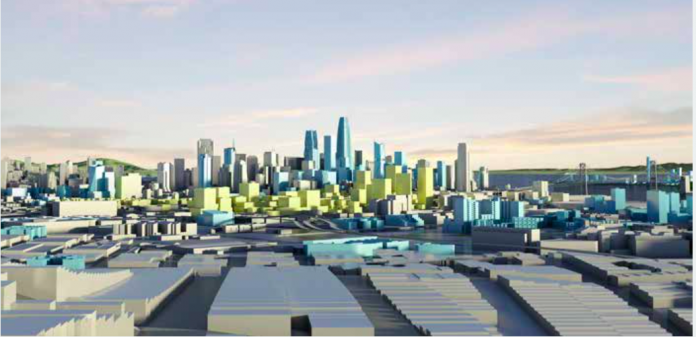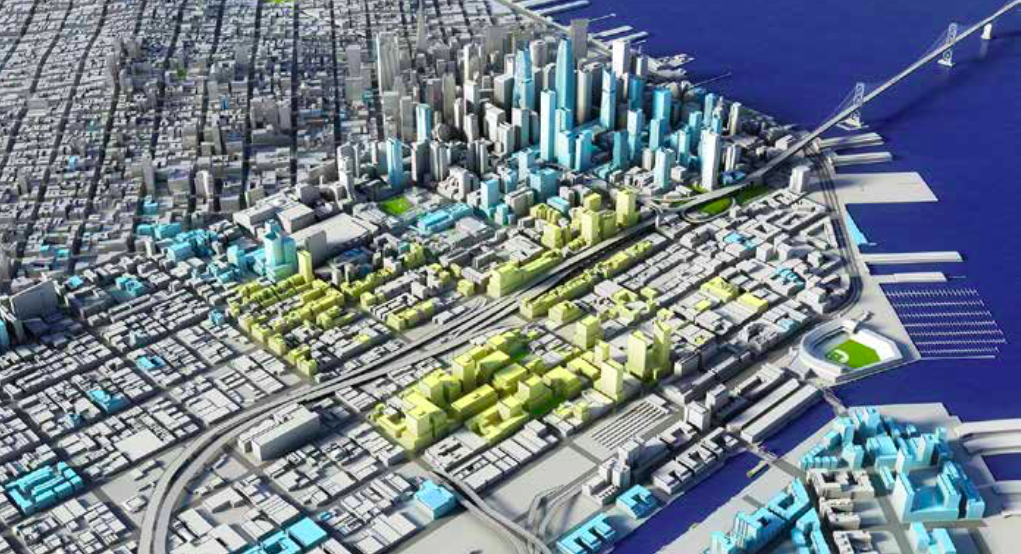
The Board of Supes is set to give final approval Tuesday/13 to a Central Soma Plan that almost everyone agrees has too much office space and too little housing. I still don’t understand why this is going forward – except that City Planning, Sup. Jane Kim, and a lot of others have been working on it for a very long time, and perhaps they just want to see something finished.
The plan would potentially create another downtown in Soma. San Francisco doesn’t need another downtown. In fact, I could argue that San Francisco doesn’t need a whole lot more office space – the office space we already have is enough to have created a massive housing crisis.

The unemployment rate is about as low as it can get in San Francisco (although many people are working part-time or in the “gig economy” with no benefits or job security). So why are we trying to bring in more jobs – the majority of which will go to people who don’t currently live here? Which means they will need a place to live – and the jobs-housing mix in the Central Soma Plan is completely out of whack.
And since the EIR for this project was done with the goal of creating more office space, the supes can’t approve more than a fraction of the housing the city will need without doing a new EIR.
As we noted in September, when the EIR was before the board:
The overall reason that the planning department wants this proposal is, as planner Lisa Chen told the board, the existing zoning, which includes a lot of industrial areas, doesn’t bring in enough money to pay for the improvements the neighborhood needs. So those blue-collar jobs have to go to make room for tech offices (even though there is nowhere near enough housing in the city for the new tech workers, and we have been through this before, and it has been a nightmare for existing residents).
This is an astoundingly rich city, perhaps the richest city in the history of civilization (I know that’s a crazy claim, but try to dispute it). We can afford to fix up Soma without making the housing situation radically worse and losing thousands of blue-collar jobs.
Nobody dissented from the approval of the EIR. Kim is supporting the plan, so it will pass. And when the housing crisis, the traffic, the demands on public services, all get worse in five years, everyone will look around and wonder why.
The supes are also slated to approve a deal with the Mayor’s Office that gives some market-rate housing projects that are grandfathered in with lower affordability requirements a time extension for starting construction.
This goes against both the intent of Prop. C (the 2016 version), which mandated higher affordable housing construction, and the direction the board has been taking for the past year or so, which is to demand that developers who have gone through the approval process actually start building their housing.
Mayor Breed wanted to give 33 developers who are still operating under the old, lower requirements 30 months to start construction. The current deadline is in December. Sups. Kim and Aaron Peskin got that down to 18 months.
The discussion at the Land Use and Transportation Committee was interesting: For starters, the Mayor’s Office said there were as many as 4,000 units, including 600 affordable units, that “might not make the deadline.”
The supes were able to establish that there are actually only two projects, with a total of 55 units, seriously at risk. So we’re talking about a tiny number of affordable units.
Also, Peskin pointed out that the Planning Department’s number “are terrible” and that the process was a mess:
I think we came up with a pretty good compromise, and then with all respect to the representative of the mayor’s office, generally the way this works is when the supervisors say last week, hey, city attorney, we want you to craft some amendments, generally we work collaboratively in the intervening week, and you don’t go and dump your own amendments on this committee, particularly amendments that were not in any way discussed with the supervisors who were indicating that we wanted to work together, compromise, and that we were drafting some amendments. That’s just the way it works here, and that’s the way it’s worked here for the almost 20 years that I’ve been on and off the Board of Supervisors.
Nevertheless, the committee approved the compromise.

